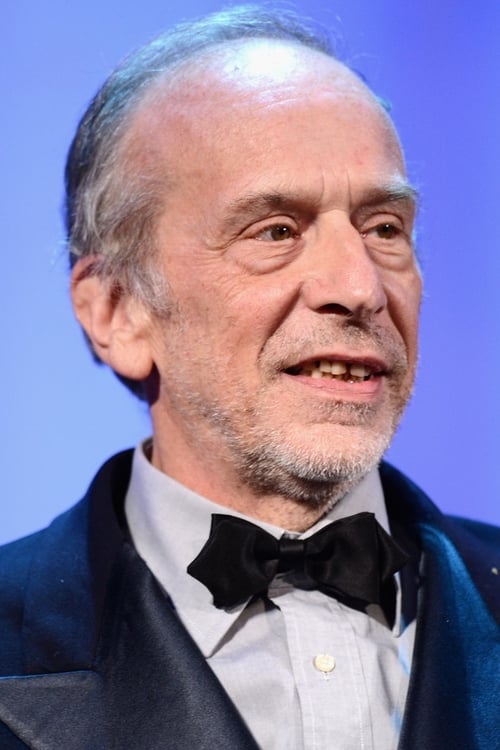
Director of Photography
Three siblings comprise the latest generation in a family of puppeteers led with passion by their father. They are magicians of a kind, but can barely make ends meet, working mainly for the love of their craft. Their grandmother contributes too, not only as a seamstress but also as a repository of memories and wisdom. A tragic event will challenge the desire of each sibling to carry on.

Self
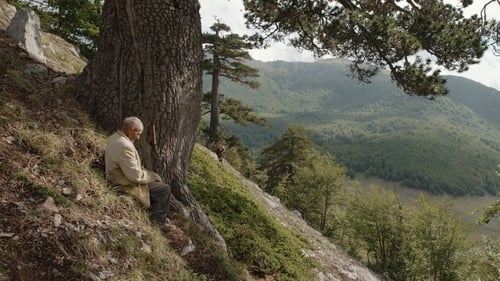
Director of Photography
En agosto de 1961, los espeleólogos del floreciente norte de Italia llegan a una meseta de Calabria donde el tiempo parece haberse detenido. Los intrusos descubren una de las cuevas más profundas del mundo, el Abismo de Bifurto, bajo la mirada de un viejo pastor, único testigo del territorio virgen.
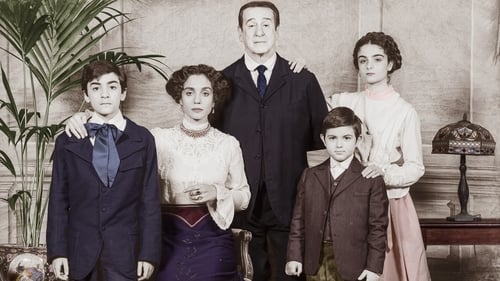
Director of Photography
El querido actor y dramaturgo napolitano Eduardo Scarpetta, padre de Eduardo De Filippo, dedicó toda su vida al teatro, logrando el éxito con obras atemporales como “Miseria e nobiltà”. Sin embargo, todo por lo que trabajó parece perdido en 1904, cuando se ve envuelto en una desagradable batalla legal que podría comprometer su libertad de expresión.
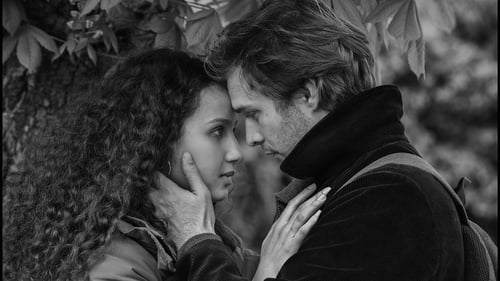
Director of Photography
Luc viaja a París por primera vez para presentarse al examen de ingreso a una escuela de carpintería. Allí conoce a Djemila, una joven trabajadora con la que disfruta de un breve romance, antes de regresar a su ciudad natal y comenzar una relación con Geneviève, a quien conoce desde la infancia. Atrapado entre dos pasiones, Luc corre, resolviendo cumplir los sueños de su padre dedicándose a su futuro ... hasta que finalmente, experimenta el verdadero amor.

Director of Photography
"The word 'revolution' to us Frenchmen is not a vague term. We know that Revolution is a rupture, that Revolution is an Absolute. There is no such thing as a moderate revolution, there is no such thing as a planned revolution—as one speaks of a planned economy. The revolution we are announcing will overturn the entire existing order or it will not take place at all..."
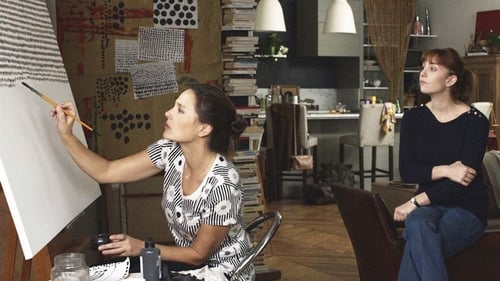
Director of Photography
Mavie is 27 years old and has just moved to the French capital from the provinces. She dreams of a future as a writer but is plagued by doubt and uncertainty. 76-year-old misanthrope Georges runs a bookshop in Paris – or has he merely been forced to take refuge there to escape his past? These are two peculiar creatures indeed. Georges is cynical and no longer expects much from life, while Mavie is still brimming with expectation. Yet something magical happens between them, until Georges' dark secret suddenly catches up with him – and Mavie is caught up in something very different...
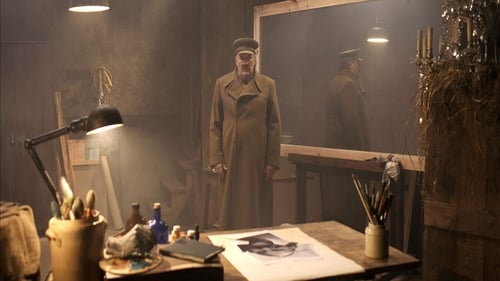
Director of Photography
Set in the 1950s Soviet Union, centers on a young artist who is commissioned to create Stalin's monument and must go through KGB scrutiny.
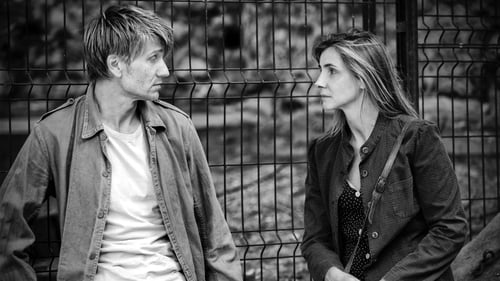
Director of Photography
Pierre y Manon son una pareja que lucha contra sus apuro económicos. Se dedican a hacer documentales de bajísimo presupuesto y sobreviven a base de trabajos temporales. Pierre conoce a una joven becaria, Elisabeth y pronto se convertirá en su amante. Pero Pierre no quiere abandonar a Manon, quiere estar con las dos. Un día, Elisabeth, descubre que Manon tiene también un amante y se lo dice a Pierre...
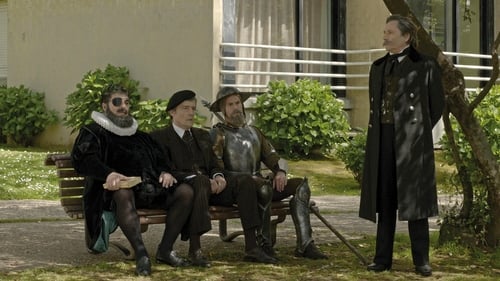
Director of Photography
Don Quixote, Luís de Camões, Camilo Castelo Branco and Teixeira de Pascoaes meet in an eternal garden in the middle of a modern city and talk about life.
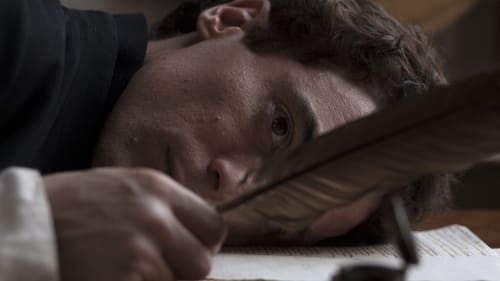
Director of Photography
Relata la maravillosa creación y la durísima y corta vida de Giacomo Leopardi, gran poeta de la Italia del siglo XVIII. Condicionado por sus terribles padecimientos corporales, Leopardi transita desde la Recanati de la biblioteca paterna hasta la Nápoles del cólera, dejando una obra tan personal como trascendente.

Self
Davide Pozzi, who oversaw the delicate process of scanning the original camera negative, discusses the restoration of Alain Resnais' 1959 film HIROSHIMA MON AMOUR with cinematographer Renato Berta, a special consultant on the project.

Director of Photography
The film is about the failure of (Abu Afif) grandfather of the child (Karim) who owns an old-fashioned property, with the end of the civil war and the passage of days becomes Karim young and immigrants with the timing of the reconstruction of Beirut, Karim finds in that project hope to restore paint and restoration of the structure inherited About his grandfather. It collides with the rehabilitation project when it is discovered that the building is owned by a real estate company in order to establish its place of the Dream Tower. The company succeeds in owning some floors and the building renovation project is stopped for the second time. In the meantime, Karim meets Maya, and they experience a swaying love story in tandem with the problem of demolishing or restoring and preserving the building.

Cinematography
The film intertwines historical events and intimate memories. I observe how architecture represents the transformations of society and those who give form to this architecture. We follow the journey of Munio, my father, born in 1909 in Silesia, Poland, the son of a tenant farmer of a Prussian junker. At the age of 18, Munio goes to Berlin and Dessau to meet Walter Gropius, Kandinsky and Paul Klee at the Bauhaus. In 1933, the Bauhaus was closed by the Nazis, who accused Munio of treason against the German people. Munio was imprisoned, then deported to Basel. He left for Palestine. Upon his arrival in Haifa, he began a career as an architect and adapted European modernist principles to the Middle East.

Self

Director of Photography
Ambientada en el siglo XIX. Un honrado y pobre patriarca se sacrifica para salvar la vida de su hijo, un fugitivo. (FILMAFFINITY)

Director of Photography
Un couple se dirige vers un train en partance pour Venise. Sur le quai, Julien annonce à Marie qu’il part en rejoindre une autre et s’en va, la laissant seule à Paris, enceinte. Bouleversée, Marie se refuse à être victime de cette situation. Elle trouve du réconfort dans son travail auprès de ses deux « cow-boys » de patrons, Jean-Jacques et Jean-Loup, qui dirigent un cinéma du quartier latin spécialisé dans les films classiques américains…
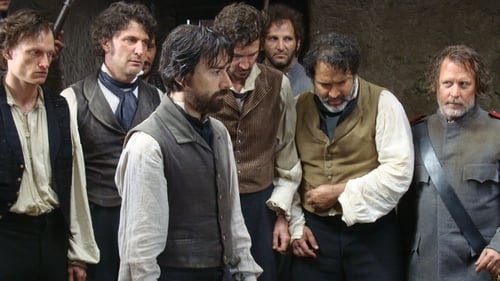
Director of Photography
Como respuesta a la feroz represión borbónica de 1828, tres jóvenes del sur de Italia, Domenico, Angelo y Salvatore (Luigi Lo Cascio, Valerio Binasco y Luigi Pisani), deciden alistarse en el grupo de resistencia dirigido por Giuseppe Mazzini (Toni Servillo). A través de cuatro episodios, seremos testigos de la corrupción, las conspiraciones y las pulsiones homicidas que se viven en el seno de la organización. La unidad de Italia es el objetivo, pero no parece que vaya a ser precisamente un camino de rosas.
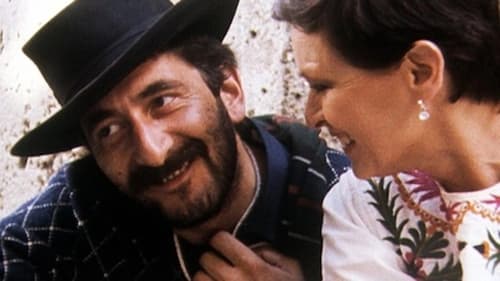
Self
When director Daniel Schmid grew up, his parents ran a hotel in the Alps, and this singular setting was to influence his film. Rather by coincidence he came to Berlin in the early 1960s and became part of the new German wave. Schmid worked with, among others, Wenders and Fassbinder, for example as an actor in Wender’s The American Friend. He met Ingrid Caven, who was to play a diva in several of his films. This is a documentation of a part of modern European film history and a good analysis of artistry and how it corresponds to the individual behind the camera. A wealth of archival footage brings us close to many directors and actors in Schmid’s circle. If you’ve never seen a Daniel Schmid film, you are sure to want to after watching this portrait of his life.

In the summer of 1986, Danièle Huillet and Jean-Marie Straub were working in the park of an old Sicilian mansion and in a clearing at the foot of Mount Etna shooting Der Tod des Empedokles. Assistant cameraman Jean-Paul Toraille toyed around, so to speak, with his first video camera, filming the daily work on the set. Now, 24 years later, he was joined by Jean-Marie Straub in editing the material into a film. Anyone who expected the shooting of Les Avatars de la mort d’Empédocle to be an austere affair, an exercise entirely devoid of humour or a Straubian tour de force is proven wrong: so much lightness, joy, concentration, spells of waiting for the sun to come out – and even proper slapstick in between – is hard to find.
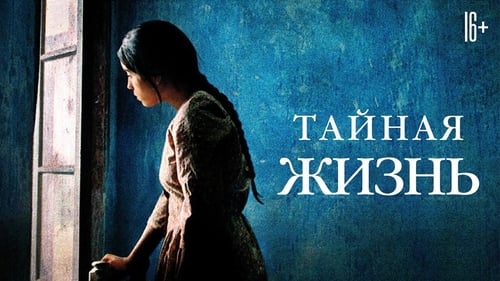
Director of Photography
A teenager unwittingly reveals a terrible family secret to her new neighbors.

Director of Photography
Jean-Marie Straub's first film after the death of Danièlle Huillet is a love poem to her. Le Genou d'Artémide is based on Cesare Pavese's "Dialogues of Leuco", which had already been adapted by Straub et Huillet as Ces Rencontres Avec Eux (2006).

Director of Photography
These Encounters Of Theirs divides 10 non-professional actors into couples, then has them take turns in declaiming the Dialogues With Leuco, Cesare Pavese's abstract, philosophical work.
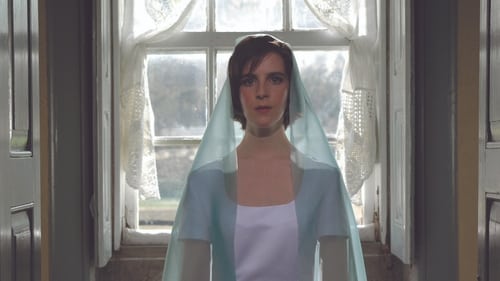
Director of Photography
Luciano, sale de prisión y es llevado por su hermano, Flórido, a casa de Alfreda, donde trabajará como sirviente. Alfreda le dice que su mayor deseo es que se le aparezca la virgen, lo que deja a Luciano admirado. Además de todo, ahora la rica señora viene con sus pretensiones sublimes. ¿No le bastaba con tener un Aston Martin y un Jaguar aparcado a la puerta de casa, ni tener diez vestidos para cada estación? Todo fue culpa del profesor Heschel, o de quien fuera… Ir más allá de la promesa sería una herejía. Alfreda dijo que no descansaría mientras no viera a Maria y le hiciera unas cuantas preguntas. Filipe Quinta, el Falsificador, afirma tener la solución. Sin embargo, Bahia, su marido, escuchaba música…

Director of Photography
Biografía sobre François Mitterrand (1916-1996), presidente de la República Francesa entre 1981 y 1995. Cuando el presidente estaba ya entre la vida y la muerte, un joven y apasionado periodista intenta arrancarle sus opiniones sobre política e historia, sobre amor y literatura, sus certezas y dudas sobre la vida. Pero el anciano no está en condiciones de hacerlo porque para él pasado, presente y futuro ya son una sola cosa: el tiempo en el que ya no hay certezas, sólo dudas. (FILMAFFINITY)

Director of Photography
A visit to the Louvre in Paris commentated by an actor reading Cézanne.

Director of Photography
París, 1925. Georges Valandray, un próspero hombre de negocios, cree que es el primer y único hombre en la vida de su esposa Gilberte; ignora que ella estuvo casada con un americano llamado Eric Thomson. Este secreto está a salvo, pues sólo lo conoce la hermana de Gilberte. Pero, un día, Thomson llega a París para hacer un negocio con Georges, y la tempestad estalla cuando Thomson confiesa que quiere volver con Gilberte a cualquier precio.

Cinematography
In Italy, immediately subsequent to the war, a group of people who lost all they possessed during the conflict, settle in a village in ruins. They intend to restore the city from the rubble and re-start life, in imitation of the women of Messina who rebuilt their city, destroyed as it was by an earthquake. Oscillating between respect and suspicion, co-existence between group members is tense. Things become complicated when an envoy from the government arrives to say that nothing there belongs to them. The film is a free adaptation of fragments of the novella ‘The Women of Messina’, by Sicilian writer Elio Vittorini.

Cinematography
En la Italia de la inmediata posguerra, un grupo de gente que ha perdido todo lo que poseía durante el conflicto, sobrevive en un pueblo en ruinas. Tratan de levantar la ciudad de las ruinas y reiniciar su vida, a imitación de las mujeres de Messina que reconstruyeron la ciudad, devastada por un terremoto. Oscilando entre el respeto y la sospecha, la coexistencia entre los miembros del grupo es tensa. Las cosas se complican cuando un eviado del gobierno llega para decirles que nada de lo que tienen les pertenece. La película es una libre adaptación de fragmentos de la novela Las mujeres de Messina, del escritor siciliano Elio Vitorini.
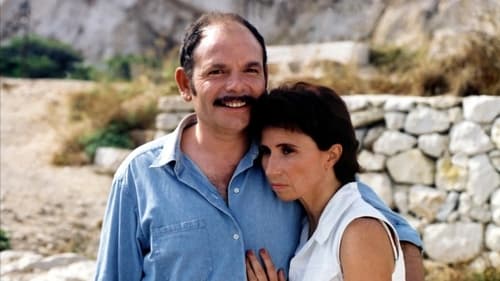
Director of Photography
Marie-Jo ama profundamente a Daniel, su marido, pero también ama a Marco, su amante. Cuando Marie-Jo deja su hogar y se va a vivir con Marco, Daniel espera angustiado su regreso. Son dos amores incompatibles, pero hay que seguir adelante.

Director of Photography
Aunque Antonio pertenece a una rica familia y José es hijo de la sirvienta, han compartido su infancia bajo la protectora mirada de la criada, atenta a sus mínimos gestos. Con el paso de los años el amor estrechará los lazos entre ellos dos: Antonio se casa con Camila, de la cual José siempre ha estado enamorado, y tiene por amante a la peligrosa Vanessa, socia de José en oscuros e inconfesables negocios. El diablo interviene y se burla cruelmente de la criada que siempre ha intentado en vano conjurar la mala suerte. La trama de estos cuatro destinos entrecruzados pasará por las llamas del infierno.

Director of Photography
A group of men and women have been brought together after World War II, when Italy regained its national and territorial unity. They make up a primitive community which seeks to erase not only the distress created by the war but also the hardships of life, and look to protect themselves from violence, misery and fear. Amid the ruins of this post-war period, these men and women build a new rapport between themselves, between sexes, between generations, between social and geographical origins, between political camps.

Director of Photography
La película se desarrolla en Palestina entre 1940 y 1946. Es la historia de una joven mujer llamada Samantha que, junto a su marido Dov Ernst, emigra a Palestina. Ambos son sionistas americanos y hacen su traslado fuera de convicciones e idealismos políticos. Dov es arquitecto y comunista, y ha dedicado prácticamente toda su vida y su energía a construir un nuevo país, dejando a su mujer a su aire, incluso aunque ella intente encontrar formas de involucrarse en el trabajo de él. Kalman, el hermano de Samantha, capitalista, también deja Estados Unidos para marcharse a Palestina, donde espera encontrar un gran lugar para los negocios, encontrar oportunidades comprando tierras árabes. Su padre intenta advertirle para que abandone la idea; la tierra no es muy fértil allí.

Director of Photography
Siglo XVII. El padre jesuita Antonio Vieira es obligado a comparecer ante el Tribunal del Santo Oficio en Coimbra. Una serie de intrigas a sus espaldas le han colocado en una situación complicada tras la muerte de su amigo, el rey Joao IV. Ante los jueces hará un repaso de su vida, empezando por su juventud en Brasil y su papel como adalid de los indios nativos.
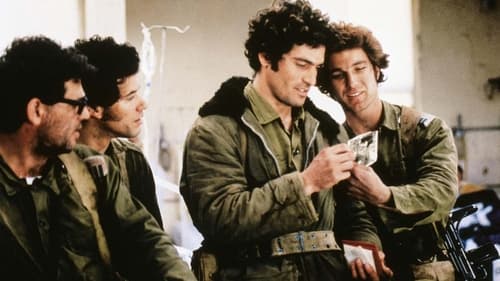
Director of Photography
6 de octubre de 1973, todo está en calma en Israel, es la fiesta de Yom Kippour (Día del Perdón)... cuando súbitamente estalla la guerra. Weinraub y su amigo Russo parten hacia el sur del Golán en busca de Egoz, la unidad especial donde hicieron el servicio militar. Terminan llegando a la base aérea de Ramat donde formarán parte de un equipo de rescate a bordo de un helicóptero.
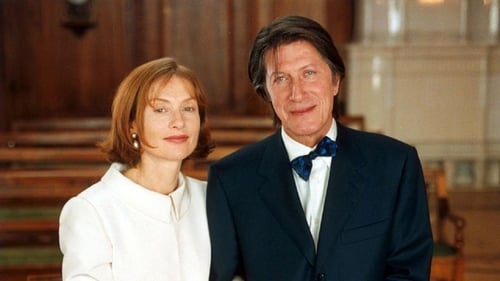
Director of Photography
Mika Müller, directora general de Chocolates Müller, es una mujer que, bajo una apariencia encantadora y delicada, acostumbra a controlar a todos los que están a su alrededor, incluido su marido, André Polanski, un prestigioso pianista, y el hijo de éste, Guillaume, cuya novia Jeanne, según Mika, supone una amenaza para la estabilidad familiar.

Director of Photography
A naive girl's love for Switzerland is put to the test in this satiric comedy. Irina is a woman from Russia who all her life has always been fascinated by Switzerland and longs to live there some day, though her notion of Swiss life has more to do with Heidi and old movies set in the Alps than reality.
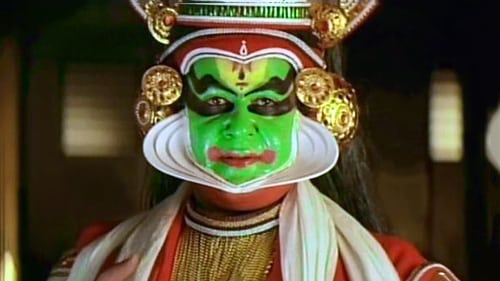
Director of Photography
Kunhikuttan, a famous Kathakali dancer, meets Subhadra, a woman from an upper caste family, who falls in love with his character rather than himself.
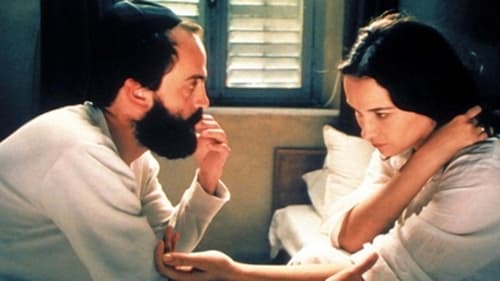
Director of Photography
The year 2000 approaches in Jerusalem's Orthodox Mea Shearim quarter, where the women work, keep house, and have children so the men can study the Torah and the Talmud. Rivka is happily and passionately married to Meir, but they remain childless. The yeshiva's rabbi, who is Meir's father, wants Meir to divorce Rivka: "a barren woman is no woman." Rivka's sister, Malka, is in love with Yakov, a Jew shunned by the yeshiva as too secular. The rabbi arranges Malka's marriage to Yossef, whose agitation when fulfilling religious duties approaches the grotesque. Can the sisters sort out their hearts' desires within this patriarchal world? If not, have they any other options?

Director of Photography
Película inspirada en tres obras de muy diferente naturaleza cuyas historias se hilvanan con ingenio. En la primera un padre anima a su hijo a suicidarse para evitar la decrepitud. En la segunda, situada en el Oporto de los años 30, Suzy es una prostituta que se debate entre la vida y la muerte. En la última, un amigo le cuenta al playboy que se ha enamorado de Suzy la vida de una joven campesina, Fisalina, que un buen día descubre que tiene los dedos de oro.
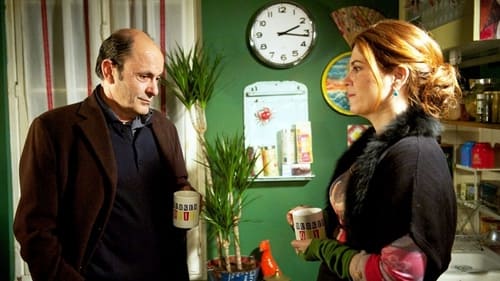
Director of Photography
Famosas canciones populares francesas son interpretadas por los protagonistas de esta película en la que una joven se enamora, como consecuencia de un equívoco, del jefe de su admirador. Los malentendidos entre los diversos personajes provocan divertidas situaciones.
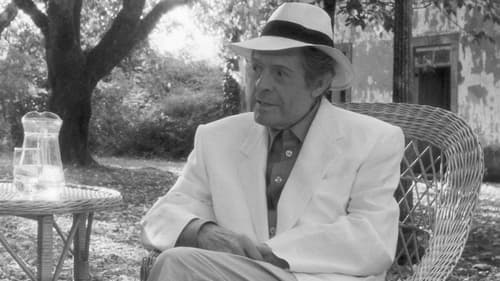
Self
En 1996, Marcello Mastroianni se dispuso a recordar el pasado, frente a la realizadora Anna Maria Tató, la mujer que compartió con él los veintidós últimos años de su vida. El resultado es este repertorio de anécdotas, confesiones y memorias narradas por el protagonista en primera persona. (FILMAFFINITY)
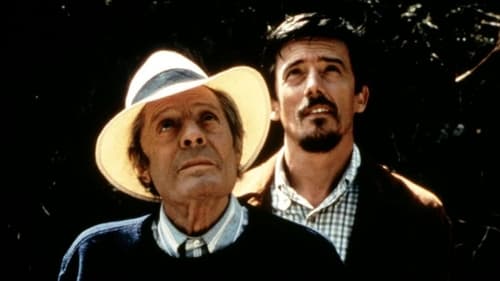
Director of Photography
Manoel is an aging film director who travels with the film crew through Portugal in search of the origins of Afonso, a famous French actor whose father emigrated from Portugal to France and in process remembers his own youth.

Director of Photography
This French language drama from Portuguese filmmaker Manoel de Oliveira takes an ironic look at the pretentiousness of international jet-setters while simultaneously examining an obsessive romantic relationship between an aging Lothario and a beautiful married woman. The tale begins at a garden party in a lovely villa in the Azores held by Rogerio and Leonor for handsome, middle-aged Michel and his mistress Irene, a noted Greek movie star. The guests aren't there long before an obvious attraction between Leonor and Michel prompts them to head for a private beach (their tryst, if there was one, occurs off-camera). Five years later, the foursome again meet for a garden party and once again they pair off after spending much time discussing gender differences, emotion, social insight and exchanging witty bon mots.

Director of Photography
In Japanese theater women's roles are traditionally played by men. The man playing the woman's role, the Onnagata, does not imitate the woman, as in the West, but tries to capture her significance. He need not stick close to his model, but draws far more from his own identity - a shift of value takes place, which is nonetheless not a step beyond. THE WRITTEN FACE is an attempt to offer an insight into the Japanese Kabuki star Tamasaburo Bando, one of the last defenders of this ancient and disappearing performing tradition.

Director of Photography
This French farce chronicles one special day in the lives of a married pair of Parisian architects, Fabienne and Bruno, as they anxiously await the results of an important architectual contest they have entered. Unable to handle the stress of waiting, both turn to sexual liason's to ease their tension. Bruno ends up enacting a dark sexual fantasy with a stranger while Fabienne eventually succumbs to the advances of Bruno's friend Simon, a fortyish Lebanese businessman and part-time drug dealer. The comedy takes on overtones of psycho-drama when the contest winner announced and the couple discovers the truth of each other's actions. A cache of drugs, discovered in an apartment only adds to their troubles.

Director of Photography
Kazuo Ohno, Father of the Butoh Dance, first appeared on stage at the age of 43. He left the stage only at the age of one hundred, three years before he died. This short dialogue less film presents the exceptional range of expressions that this Japanese dancer could achieve, both with makeup and costumes and without.

Director of Photography
Drama - This Israeli drama tells the story of three men living in Tel Aviv. They set off to attend a funeral. Unfortunately, they cannot find the right cemetery. Later the story shifts to their complex love lives. - Gabi Beniashvilly, Samuel Calderon, Helena Cherkasov

Director of Photography
A collaboration in which Robert Wilson and Heiner Müller let Molière die, imagine his death in tableaux with text passages recited by Müller himself. "Cinema watches Death at work." Wilson's actors watch Molière die: their vigil is hard work. Müller's comment: "The poem watches a dying man at work, his name is Molière. The poem is not a film. The film watches an actor playing a dying man called Molière."

Director of Photography
"Smoking" and "No Smoking" are two segments of the film which are based on closely connected plays. The original plays covered eight separate stories, which have been pared down to three each for these movies. At a certain point in the story of each segment, the five female characters (all played by Sabine Azema) and the four male characters (all played by Pierre Arditi) have their lives skillfully recapped in terms of "what might have happened" if they had made or failed to make certain choices. For example, "No Smoking" focuses chiefly on the relationship between the mild-mannered Miles Coombes and his infinitely more aggressive and ambitious wife, Rowena.
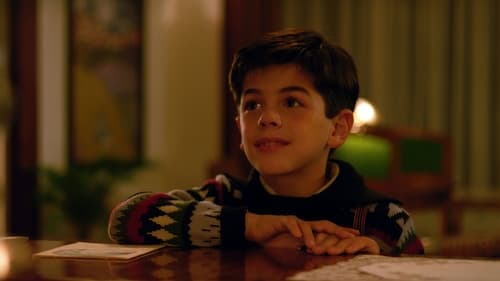
Director of Photography
The formerly great Swiss hotel which Valentin's family owned when he was a boy has been emptied and is about to be torn down. He revisits the magical site's empty halls and ballrooms.

Director of Photography
Frustrated with her life, a Parisian tells her philandering husband about her lover.

Director
Cannes Festival 1991
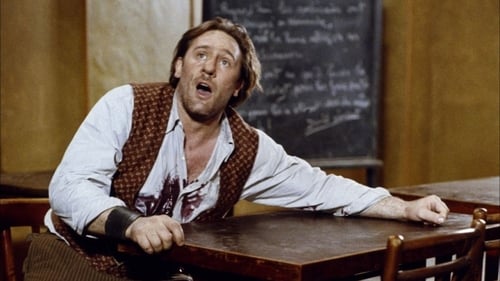
Director of Photography
After World War II, a small French village struggles to put the war behind as the controlling Communist Party tries to flush out Petain loyalists. The local bar owner, a simple man who likes to write poetry, who only wants to be left alone to do his job, becomes a target for Communist harassment as they try and locate a particular loyalist, and he pushes back.
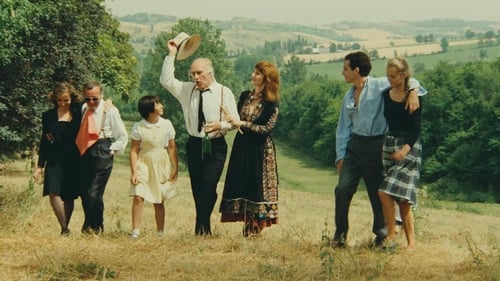
Director of Photography
Émile Vieuzac vive con su madre en una gran casa de campo. Cuando ella muere repentinamente, él invita a todos sus parientes a acudir al funeral. Son los tiempos de la revuelta estudiantil de mayo del 68. (FILMAFFINITY)
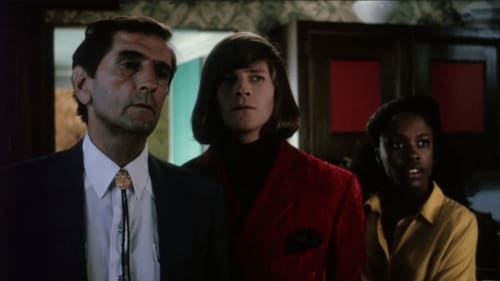
Director of Photography
Una excéntrica familia de Kansas es atrapada en su casa rural durante una espeluznante tormenta.

Director of Photography
Lovers Beatrice Dalle and Wadeck Stanczak can't quite cope with the situation when Dalle becomes pregnant. Stanczak fears that his future as an architect will be scuttled by any parental responsibilities. For her part, Dalle wants to keep the baby, but she also wants to keep Stanczak. Attempting to smooth the waters is the couple's mutual friend Francis Frappat. Chimere was the second feature-film project for director Claire Devers, who rose to prominence on the strength of her award-winning maiden effort Black and White.
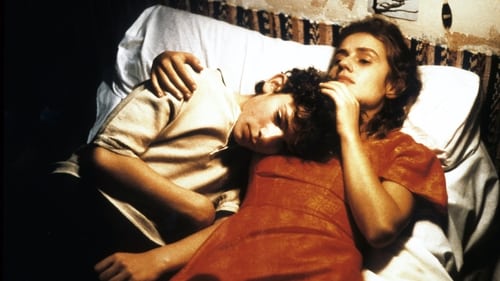
Director of Photography
Jeanne viaja a Toulon, en el sur de Francia, para asistir a la boda de su hermana. De paso también verá a Alain, su hermano sordomudo. Durante la celebración conoce a Said, el mejor amigo de Alain, y a Stephanne, que acaba de salir de un coma y tiene que volver con su padre, un hombre que vive atormentado por su homosexualidad y se refugia en el alcohol. Jeanne se siente atraída por los dos. Sin embargo, no es ella el motivo por el que estalla un conflicto entre ambos. Lo que ocurre es que los dos están vinculados a ciertos acontecimientos turbios del pasado.
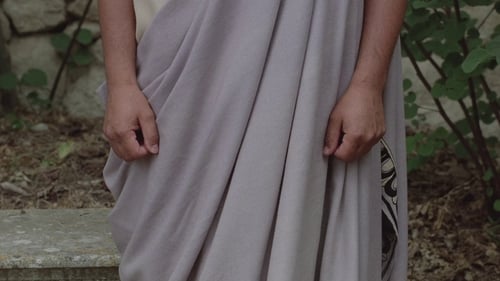
Director of Photography
La obra inacabada del poeta romántico alemán Friedrich Hölderlin "Empedokles" cuenta la historia del filósofo griego y su exilio y muerte arrojándose a un volcán en activo. Huillet y Straub trasladan la acción a la Sicilia rural, colocando a sus actores frente a un entorno exuberante. Filmada casi exclusivamente en planos fijos, la película enfatiza la belleza de los versos de Hölderlin. (FILMAFFINITY)
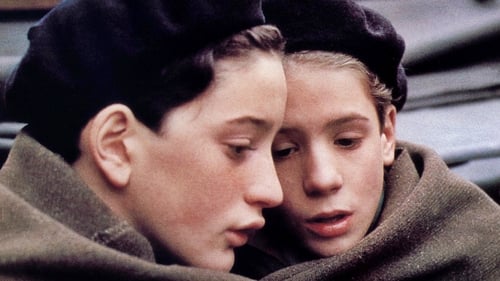
Director of Photography
Au revoir les enfants cuenta una historia desgarradora de amistad y pérdida devastadora de dos niños que viven en la Francia ocupada por los nazis. En un internado católico provincial, los jóvenes precoces disfrutan de una verdadera camaradería, hasta que se revela un secreto. Basada en eventos de la propia infancia del escritor y director Malle, la película es una historia sutil, observada con precisión, de coraje, cobardía y trágico despertar.
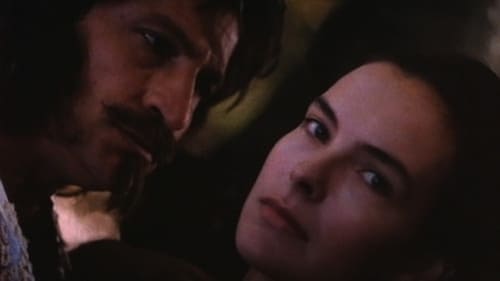
Director of Photography
A journalist is assigned to interview an eccentric anthropologist who has exhumed the skeleton of Jörg Jenatsch, a revered freedom fighter who was mysteriously murdered in 1639. Initially disinterested, the journalist begins to uncover unflattering truths about the national hero and experiences visions in which he seems to be witnessing events that transpired over 300 years ago. As he obsessively pursues the investigation, his personal life and his grip on reality disintegrate, drawing him relentlessly toward the fatal carnival at which Jenatsch was killed.
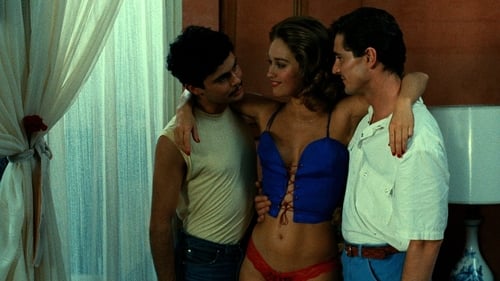
Director of Photography
Rosa la Rose is the most beautiful prostitute of Les Halles. Every client wants her and she accepts everything. Her pimp is a sympathetic and generous man and there is not much to tell about Rosa’s life. Until one day she meets Julien, a young guy, and falls in love with him. But will it be worthy to leave her life for a madness love?
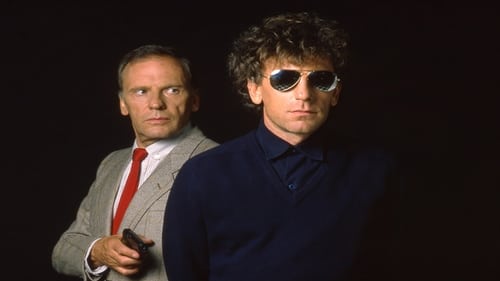
Director of Photography
Después de cumplir sentencia, un ladrón vuelve a su tranquila ciudad natal para recuperar el botín, pero un detective de policía sin escrúpulos y su joven subordinado siguen al delincuente.

Director of Photography
En la Alta Provenza, en los dominios de Hurlevent, los hermanos Catherine (Fabienne Babe) y Guillaume Sévenier (Olivier Cruveiller) se ven enfrentados a causa de Roch (Lucas Belvaux), un niño abandonado, que es acogido por el señor Sévenier e incorporado a la familia. La relación entre el salvaje Roch y la exquisita Catherine trasciende las barreras de la fraternidad o el amor convencional, y provoca los celos de Guillaume que hace todo lo posible por denigrar a Roch, y separarlo de su hermana. Durante una escapada clandestina, Roch y Catherine descubren la mansión de los Lindon, una adinerada familia de la alta burguesía. Poco después Olivier Lindon (Olivier Torres) pide la mano de Catherine. Roch, desesperado, huye. Años después reaparece, después de haber hecho fortuna. A pesar de que Catherine esta casada, el tormentoso vínculo que los une sigue intacto...
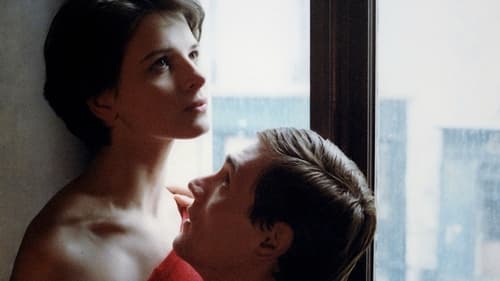
Director of Photography
Nina, joven de provincias que descubre la capital, conoce gente por casualidad y realiza su aprendizaje del teatro y el amor. Paulot en primer lugar, la tranquilizadora figura de un hombre corriente, sólida como una roca. Luego Quentin, un actor caído atormentado por un drama pasado, violento como un rayo. Finalmente, Scrutzler, un director inflexible y exhausto que elige a Nina, la arroja al escenario. Una revelación nace a través de estos tres encuentros. Pero es consigo misma que Nina tiene una cita.
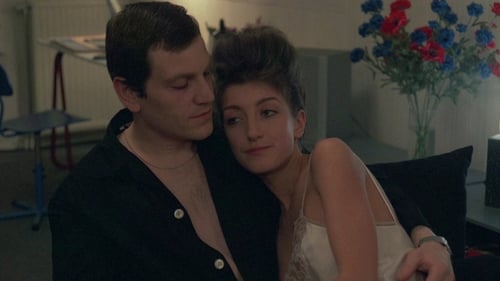
Director of Photography
Louise, una mujer joven e inquieta, siente la necesidad de tener un espacio propio al margen de su posesivo novio. Para ello, alquila un pequeño apartamento en París. Convencida de que todavía no está preparada para la vida de pareja, Louise se embarca en una serie de relaciones superficiales, sólo para descubrir que uno no sabe lo que tiene hasta que lo ha perdido. Cuarta entrega de la serie "Comedias y proverbios".

Director of Photography
Memoirs of the Italian Opera by the singers and musicians of the Casa Verdi, Milan, the world’s first nursing home for retired opera singers, founded by composer Giuseppe Verdi in 1896. This documentary, which has achieved cult-like status among opera and music lovers, features former singers who reminisce about their careers and their past operatic roles.

Director of Photography
Document on the city of Le Havre. Luc Moullet sets out to show Le Havre not as a single city centered on its port, but as a multitude of neighborhoods and annexed communes, making Le Havre a city of rare diversity. Commentary by Luc Moullet, said by himself. First part of an aborted "Le Havre seen by ...".
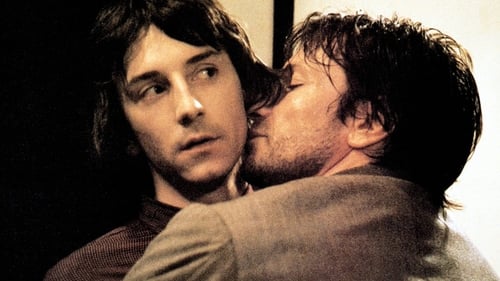
Director of Photography
Tras descubrir su condición de homosexual, un joven entabla relación con un manipulador criminal al que conoce en una estación de tren.

Director of Photography
A woman goes to Cannes and, lost in its chaos and unable to obtain tickets, ends up watching it on television from her hotel room.

Director of Photography
Portrait of filmmaker Douglas Sirk.

Director of Photography
Una pareja a punto de romper viaja a través de una alucinante Venecia.
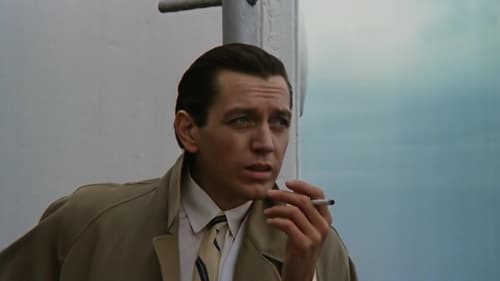
Director of Photography
Set amid the European community in an unspecified North African country, a colony on the verge of nationalism just before the war. And colonized is what happens to a French diplomat, Julien Rochelle, when he meets the mysterious beauty Clothilde de Watteville. Schmid 's favorite axiom, that love is projection, never had such a thorough airing. Is Clothilde really the wife of a French official now holed up in Siberia? Or is she Hecate, goddess of black magic and devourer of the Arab boys she meets far from the European quarter? Only our projections know for sure; for the rest, she is a "woman looking out into the night." Drawn from a novel by Paul Morand, who based the main character on his wife Helene, Schmid's film achieves an atmosphere of magic in which psychological credibility is not so much absent as irrelevant-a film that distances itself from the drama it invokes, perhaps as the elusive Clothilde turns her back on the madness she provokes.

Director of Photography
A “filmic re-reading” of Max Frisch's novella Montauk (1974) and of excerpts from his published diaries. It is neither a biographical portrait of Frisch – who was one of the greatest 20th century Swiss writers – nor a filmed adaptation of the novel. Instead, Dindo returns to the locations the author describes in his texts, searching for traces of past events that may turn out to have been more imagined than real.
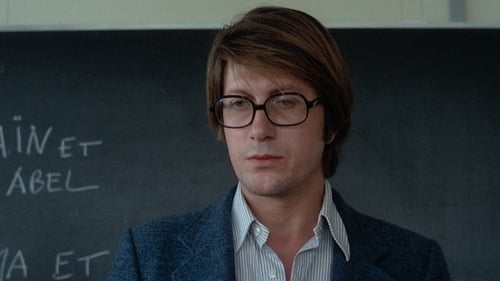
Director of Photography
Una reflexión sobre las relaciones sexuales a través de tres personajes. Denise Rimbaud (Baye) es una editora descontenta con su trabajo que un día decide abandonar a su amante, Paul Godard (Dutronc) e irse a vivir al campo. Paul no quiere abandonar la ciudad, pero no puede vivir sin Denise. El tercer personaje es Isabelle (Huppert), una prostituta que lucha por sobrevivir en la ciudad.
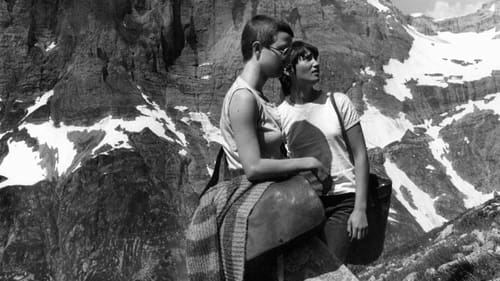
Director of Photography
Dos chicas suizas, una estudiante de historia y la otra empleada en una tienda, se encuentran haciendo autostop. Sin nada mejor que hacer, deciden emprender viaje juntas por Suiza. Una vez gastado el dinero que tienen en restaurantes y hoteles baratos, deciden continuar, durmiendo en establos y pidiendo dinero y comida a la gente. Pero, un inesperado descubrimiento, un arma en la guantera de un coche, dará un giro trágico a sus vidas. (FILMAFFINITY)

Director of Photography
Voted for in the 2012 Sight & Sound poll

Director of Photography
Jacques Lemonnier of IBM France, Francois Dalle of L'Oreal and other ultrapowerful French moguls are surprisingly candid -- and cold-blooded -- as they discuss their attitudes about business in this startling 1978 documentary. After sounding off about unions, strikes, hierarchy and management, the subjects realized how callous they sounded and managed to convince the French government to suppress the film.

Director of Photography
The film is a sort of presentation of Franco Fortini's book 'I Cani del Sinai'. Fortini, an Italian Jew, reads excerpts from the book about his alienation from Judaism and from the social relations around him, the rise of Fascism in Italy, the anti-Arab attitude of European culture. The images, mostly a series of Italian landscape shots, provide a backdrop that highlights the meaning of the text. - Fabrizio Sabidussi
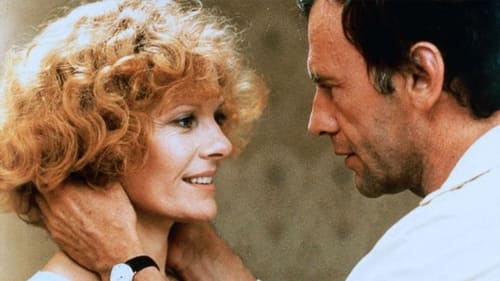
Director of Photography
Victor es un reputado cineasta que decide llevar a la pantalla la pieza de Tchékov "Las tres hermanas". Para ello convoca a las tres actrices elegidas para preparar el papel en una ciudad cerca del lago Léman. Ellas son la francesa Julie, que es su ex mujer y a la que todavía ama, la italiana Cécilia y Esther, la más joven de todas y que pronto comienza a exasperar a Julie.

Director of Photography
Two sisters, Camille and Madeleine, make up the story of a woman: Alice Constant, the servant of their grandfather who committed suicide at the age of 25.
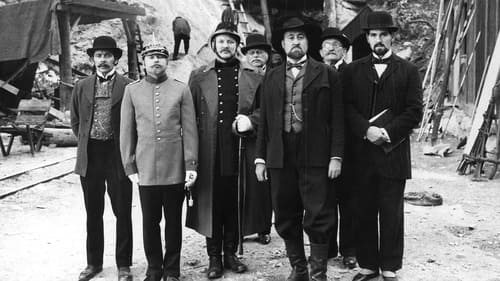
Director of Photography
In this docudrama, the real star is a railroad tunnel. First built, at the instigation of a banker and an engineer, in 1872 under appalling conditions, it was widened to accommodate automobiles in 1972. The tunnel links the Rhineland in Germany with Italy and goes through the Swiss mountains. The many lives lost in the building of the first tunnel were considered to be one of the costs for economic progress. In one re-enactment, a strike for better conditions is severely dealt with by the military. Even in 1972, though working conditions were better, most of the men working on the tunnel were poor immigrant workers, with almost no power to negotiate better treatment.

Director of Photography
A 17-year-old high school student, Jenny Kern, is found dead from cold and exhaustion in the suburbs of Lausanne, Switzerland.

Director of Photography
In Lausanne, Léon is involved by accident with a small Leninist group and gets to know Léa, a dedicated activist and the group leader's mistress. The police keep a close watch on them and trouble is bound to follow.

Director of Photography
Michel Contat is Emeritus Director of Research at the CNRS, ITEM/CNRS/ENS and a specialist of Jean-Paul Sartre whose novels and theater he has edited in the Pléiade edition and about whom he has written several books. With Alexander Astruc, he made the film Sartre par lui-même (1976) and, with Antoine Burnier, co-wrote the script of Claude Garretta’s TV film Sartre, L’Age des passions (2006). As a journalist, Contat contributed literary columns for Le Monde since 1978, and as an amateur musician, he was the jazz columnist for the magazine Télérama. His most recent books are Pour Sartre (2006) and André Gorz; vers la société libérée (2009).
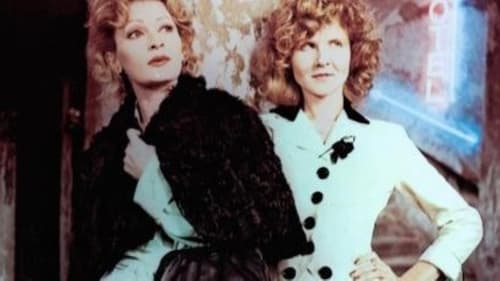
Director of Photography
Beautiful, detached, laconic, consumptive Lily Brest is a streetwalker with few clients. She loves her idle boyfriend Raoul who gambles away what little she earns. The town's power broker, called the rich Jew, discovers she is a good listener, so she's soon busy. Raoul imagines grotesque sex scenes between Lily and the Jew; he leaves her for a man. Her parents, a bitter Fascist who is a cabaret singer in drag and her wheelchair-bound mother, offer no refuge. Even though all have a philosophical bent, the other whores reject Lily because she tolerates everyone, including men. She tires of her lonely life and looks for a way out. Even that act serves the local corrupt powers.

Director of Photography
At the end of the 19th century, an educated white-collar worker finds himself in the employ of an inventor. As he is neither a "worker" nor an "owner," his position in the inventor's household and in the world at large is equivocal. Despite the difficulties he encounters, he tries to hold onto his job in order to support his family, but is eventually fired. This Swiss movie is based on a novel written around 1900 by Robert Walser.

Director of Photography
Mathieu, un desempleado, consigue trabajo en una pequeña granja llevada por Marcel y su mujer Marguerite. Su mujer Mathilde está embarazada, y quieren llamar a su hijo Jonás. La pareja además se hace amiga de Max, un desilusionado activista político tras mayo del 68, y de Marco, un profesor de historia de métodos de estudio de lo más singulares. (FILMAFFINITY)

Director of Photography
A familiar Biblical tale transformed into a cinematic opera of seemingly endless possibility. In expressive, melodic tones, the fraternal pair debate God’s true message and intent for His creations, a conflict that leads their followers towards chaos and sin. Set almost entirely within a Roman amphitheater whose history lends every precise line-reading and gesture, every startling camera move and cut, a totalizing force.

Director of Photography
Based on H.P. Lovecraft's The Shadow Out of Time, this is the story of a professor who suffers a seizure which results in total amnesia. As he recuperates he is so different his family deserts him. He gathers knowledge of things outside his specialty for five years, then has another seizure. When he reawakens he is himself again, but now he has no memory of the five years between the attacks. He begins having bizarre dreams, and tries to find out what he was doing during the five years he can't remember. What he discovers, combined with the growing reality of his dreams, convinces him that something much darker than a mere personality shift was going on.
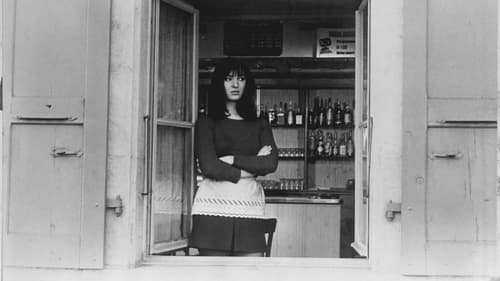
Director of Photography
Paul is married, a successful engineer, and a conservative candidate in an upcoming local election. He falls in love with Adriana, a café waitress from Italy. Paul's party is very critical of foreign labour and wants to keep Switzerland to the Swiss. Where Paul falls deeper and deeper into the relationship and is ready to leave his wife, Adriana feels the social pressure growing and has to make her own decision.

Director of Photography
Nightclub singer La Paloma succumbs to the persistent courting of a chubby rich admirer and marries him. Before the marriage, she was thought to be dying, but soon she is well. She believes her husband's love has cured her, but her efforts to love him begin to fade as she discovers true love with her husband's old school friend.

Director of Photography
A manufacturer of furniture sees his business go down and decides to rob banks to pay his staff. Het gets romantically involved with one of his victims.

Director of Photography
This is a small, intense film based on Schoenberg’s opus of the same name with the subtitle “danger, fear, catastrophe”. It deals with emerging fascism and the persecution of Jews, as well as with their historical continuities.
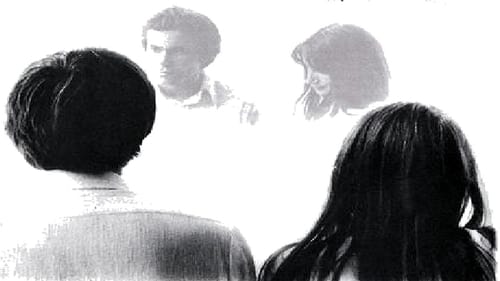
Director of Photography
An ode to liberated speech and to the power of words, "those one speaks to others, those one speaks in silence", Alain Tanner's third film is inspired by a poet and a poetic text which deeply affected him as a young director.

Director of Photography
Satire on 19th-century class relations and thinly veiled commentary on the failure of the 1968 political revolution.

Director of Photography
With the help of his assistant Anja, Ottocaro Weiss intends to put the plague on stage: circumstances beyond his control and a lack of fresh talent have forced him to close down his flea circus. For Weiss, the plague means the «extinction of everything that makes life miserable and low and freedom along with it. Unbeknownst to him, he has won the support of a patron who is of the exact opposite opinion: for Johannes Wagner, the plague is an organising principle, and, aided by his agent Moosbrugger, he is able to smuggle a new number onto the programme. Whereas Ottocaro Weiss means to represent the plague theatrically, what appears on stage is the scientific reality of the rat-borne infestation.
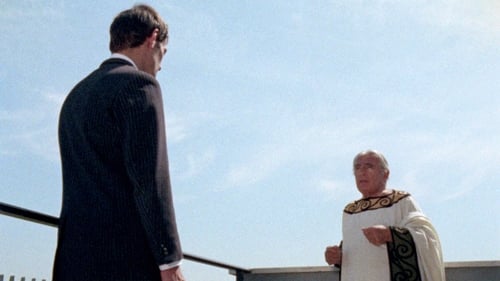
Director of Photography
Set in contemporary Rome, the film shows through a series of encounters with “ancient” Romans, how the economic and political manipulation by ancient Roman society led to Caesar’s dictatorship. - British Film Institute
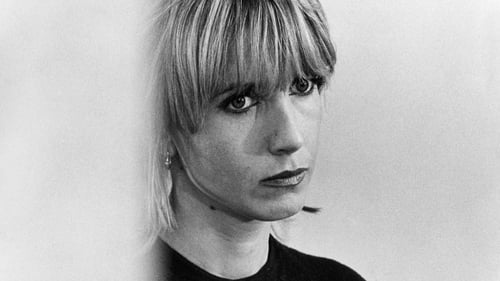
Director of Photography
Dos jóvenes escritores noveles aparecen en la vida de Rosemonde, una joven de clase trabajadora a la que conocen cuando se hallan escribiendo un drama sobre un pequeño incidente en el que su tío resultó herido, quizás mientras limpiaba su rifle o, peor, quizás le disparase a posta. Pierre, un periodista free-lance, recibe el encargo de escribir el guión, pero falto de tiempo pide ayuda a un poeta bohemio amigo suyo, Paul.

Director of Photography
Straub-Huillet’s first color film, adapts a lesser-known Corneille tragedy from 1664, which in turn was based on an episode of imperial court intrigue chronicled in Tacitus’s Histories. The costuming is classical, and the toga-clad, nonprofessional cast performs the drama’s original French text amid the ruins of Rome’s Palatine Hill while the noise of contemporary urban life hums in the background. Their lines are executed with a terrific flatness and frequently through heavy accents; the language in Othon becomes not merely an expression but a thing itself, an element whose plainness here alerts us to qualities of the work that might otherwise be subordinated.

Director of Photography
Un acaudalado fabricante de relojes suizos decide abandonarlo todo el día del centenario de la firma uniendose a una pareja de marginados.

Cinematography
Is a classic but biting description of the city Lausanne seen from the inside in its imagination and its history by a native.
